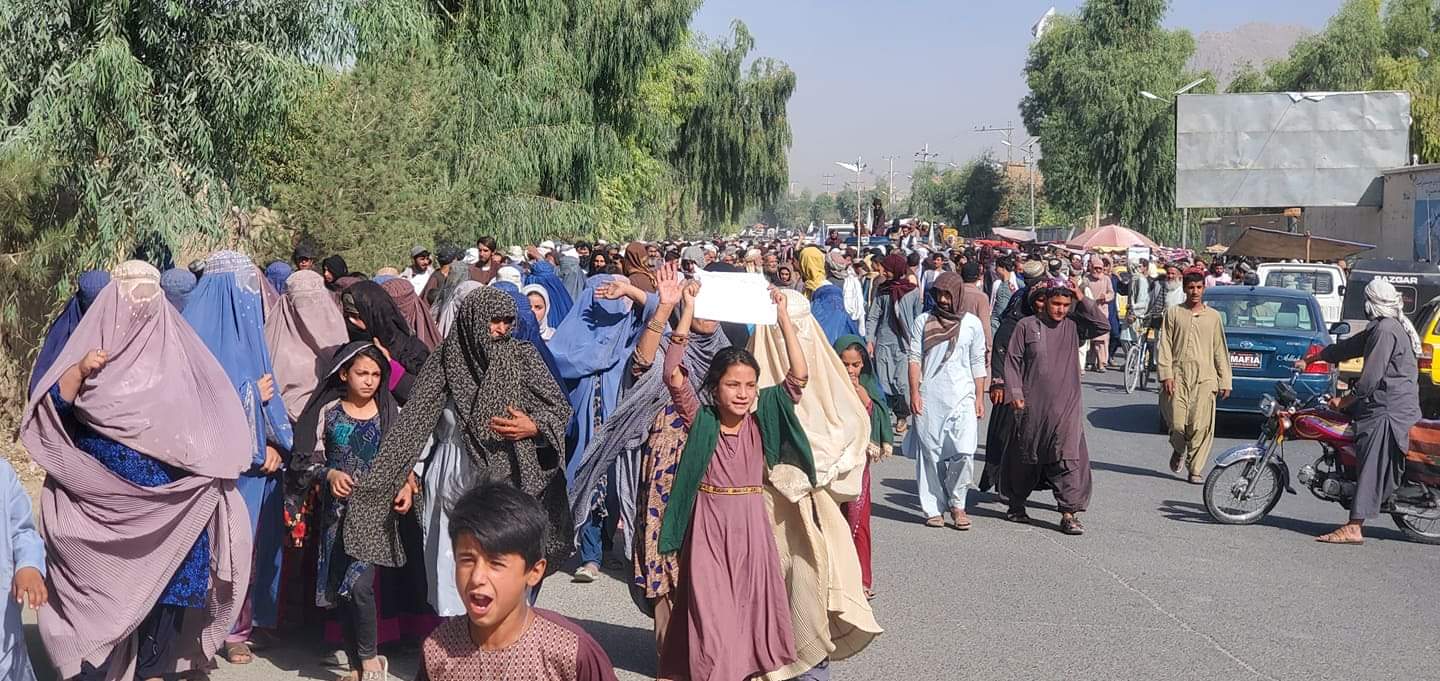
Protests broke out in the traditional Taliban stronghold of Kandahar on Sept. 14, as the city’s new administrators issued an order that the families of soldiers in the vanquished Afghan army vacate a military-owned housing complex where they had been living for years. In a demonstration led by women, thousands took to the streets and marched on the provincial governor’s house to protest the eviction order. The some 3,000 families, many of whom have lived in the complex for 20 years, were given three days to vacate. (Khaama, Reuters)
The UN Office of the High Commissioner for Human Rights (OHCHR) released a statement on Sept. 10 condemning the Taliban’s mounting violence against peaceful protestors in Afghanistan over the past month. The statement noted the use of live ammunition, batons and whips by Taliban forces against demonstrators, including large numbers of women who have been gathering to assert their rights. Reports have come in from many parts of the country recounting beatings and detentions of protestors, and of journalists covering the protests. There are reports of at least four people killed and over two dozen wounded when Taliban troops used live fire to disperse crowds.
The OHCHR called upon the Taliban “to immediately cease the use of force towards, and the arbitrary detention of, those exercising their right to peaceful assembly and the journalists covering the protests.” It noted that peaceful protest is a right protected under Article 21 of the International Covenant on Civil and Political Rights, to which Afghanistan is a signatory. International law imposes an obligation that force is to be used only as a last resort, and that journalists reporting on gatherings and protests must not suffer from reprisals or harassment.
OHCHR concluded that “the Taliban should cease the use of force and ensure the freedom of peaceful assembly and expression, including as a means for people to voice their concerns and exercise their right to participate in public affairs,” adding that “it is crucial that those in power listen to [protestors’] voices.” (Jurist)
In the mounting protests since the Taliban took over, women have been in the vanguard.
Photo: Khaama





Afghanistan’s girls still barred from high schools
Last month, the Taliban announced schools would be opening, but only boys of all ages were asked to return to school, leaving out secondary school girls. The Taliban said “a safe learning environment” was needed before older girls could return to school. “At present, girls in Afghanistan are effectively barred from returning to secondary school. Across the country, the rights and aspirations of an entire generation of girls are dismissed and crushed,” said Agnès Callamard, Amnesty International’s secretary general. (Al Jazeera, AI)